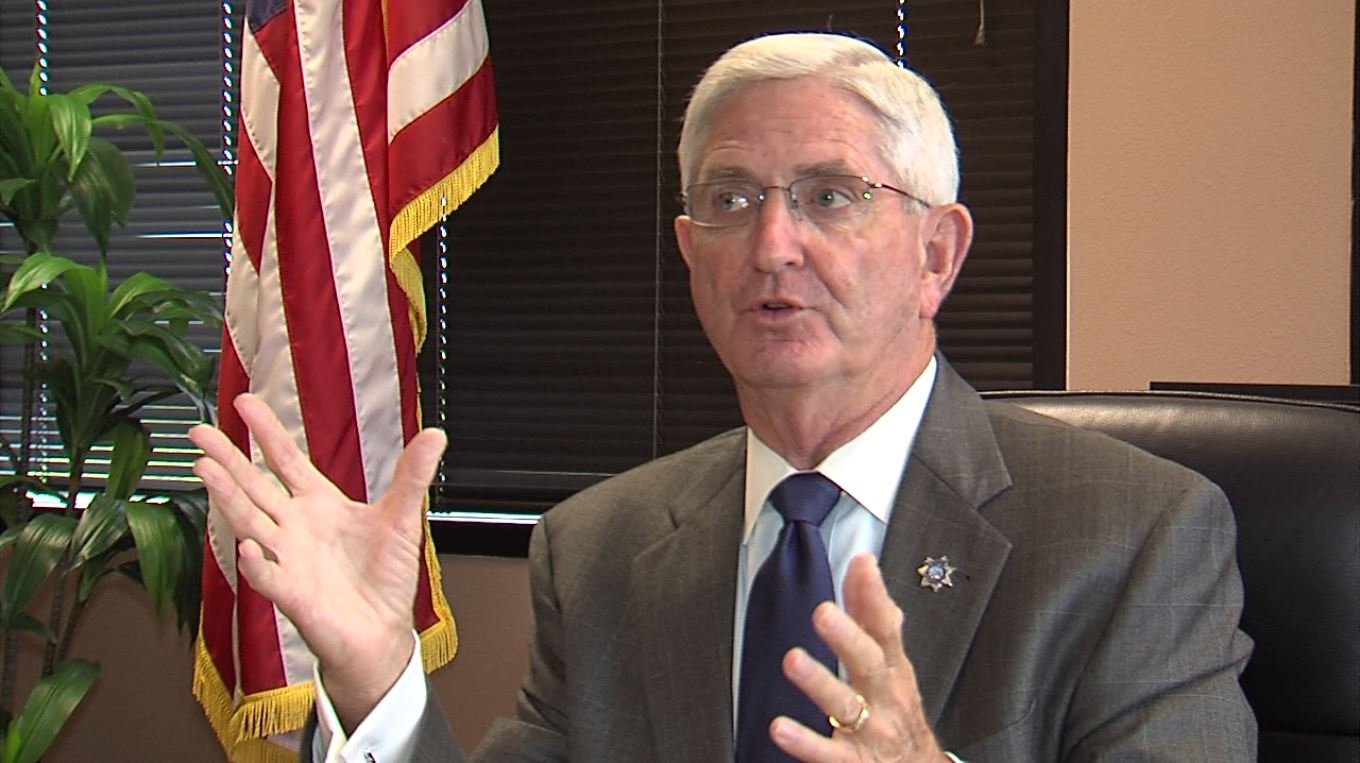Results 1 to 1 of 1
Thread Information
Users Browsing this Thread
There are currently 1 users browsing this thread. (0 members and 1 guests)
-
07-06-2015, 10:01 PM #1
Immigration vs. law enforcement: Who is in charge of criminals?
Immigration vs. law enforcement: Who is in charge of criminals?
Posted: Jul 06, 2015 6:13 PM PDT
Updated: Jul 06, 2015 6:13 PM PDT
By Kristen Cusato
SAN DIEGO (KUSI) - The tragic shooting death of a young woman in San Francisco by a Mexican immigrant who'd been deported several times brings an important question to light. Who is in charge of immigrants who commit crimes?
It would make sense that local law enforcement work closely with immigration officials to deal with immigrants who are criminals, but that working relationship is strained in much of the state.
An admission to a reporter in the Bay area, 45-year-old Francisco Sanchez said he did shoot and kill the 32-year-old woman last week as she was walking along the Embarcadero.
But Sanchez should not have been on the streets.
U.S. Immigration and Customs Enforcement or ICE said he had been deported five times and had sever prior felony convictions.
ICE told KUSI that Sanchez was booked into San Francisco County custody several months ago and that they asked to be notified when he would be released.
According to ICE, sheriffs did not tell them and as a result of that lack of communication, Sanchez is suspected of murder.
"Which causes a big problem up and down the state of California, for local sheriffs and immigration," said San Diego County Sheriff Bill Gore.
But that's not a problem here.
Gore said ICE has had a presence in the county's seven jails for the last decade.
"If they want somebody that meets their criteria for deportation, they know when that person will be released, and they take custody of them in our jail," Gore said.
There is no gap in custody. Gore said when anyone is booked into San Diego County's jails, they are screened via fingerprints to see if they are in this country illegally. ICE also gets that information.
Now, immigration officials used to be able to ask for a 48-hour hold on someone, but the California Trust Act, which was passed last year, limits hold requests in local jails.
And then federal court ruled that unless immigration agents presented a judicial finding, people cannot be held beyond their time.
"By law they can't hold them for one hour beyond when they have to be released on local charges," Gore said.
ICE is in the process of implementing something to improve communication to close the gaps with local law enforcement.
Under the "Priority Enforcement Program" or PEP, ICE will only look to transfer individuals under specific, limited circumstances.
And they are meeting with law enforcement agencies to ask them to voluntarily let them know when someone is about to be released.
That does not mean after deportation, criminals won't come back into the country.
That's another issue entirely.
"I think we have to have strong border security, it's strong now, could it be stronger? We need to take a comprehensive approach to this," Gore said.
In addition to ICE agents being in every one of the county's seven jails, there is also a 24-hour a day, 7-day a week staging facility in the federal building.
Again, offering more availability for law enforcement to call whenever they are about to released someone who may be on immigration's list.
http://www.kusi.com/story/29486696/i...e-of-criminals
NO AMNESTY
Don't reward the criminal actions of millions of illegal aliens by giving them citizenship.
Sign in and post comments here.
Please support our fight against illegal immigration by joining ALIPAC's email alerts here https://eepurl.com/cktGTn
Similar Threads
-
Priority Enforcement Program Aims to Deport Serious Illegal Criminals First
By JohnDoe2 in forum illegal immigration News Stories & ReportsReplies: 3Last Post: 03-09-2015, 04:34 PM -
Immigration Enforcement Agency Lacks Interest in Immigration Enforcement
By HAPPY2BME in forum illegal immigration News Stories & ReportsReplies: 1Last Post: 01-06-2013, 10:45 PM -
DREAMIES: Criminals complaining about other Criminals -lol
By WhatMattersMost in forum Other Topics News and IssuesReplies: 3Last Post: 04-22-2008, 02:28 PM -
Immigrant criminals worry law enforcement
By ohflyingone in forum illegal immigration News Stories & ReportsReplies: 2Last Post: 07-20-2006, 12:48 PM -
Man freed on murder charge, detained on immigration charge
By Brian503a in forum illegal immigration News Stories & ReportsReplies: 0Last Post: 10-21-2005, 12:47 PM


 LinkBack URL
LinkBack URL About LinkBacks
About LinkBacks





 Reply With Quote
Reply With Quote


Watch: Paul, Hawley Torch Mayorkas To His Face On Laken Riley's...
04-19-2024, 02:32 PM in illegal immigration News Stories & Reports